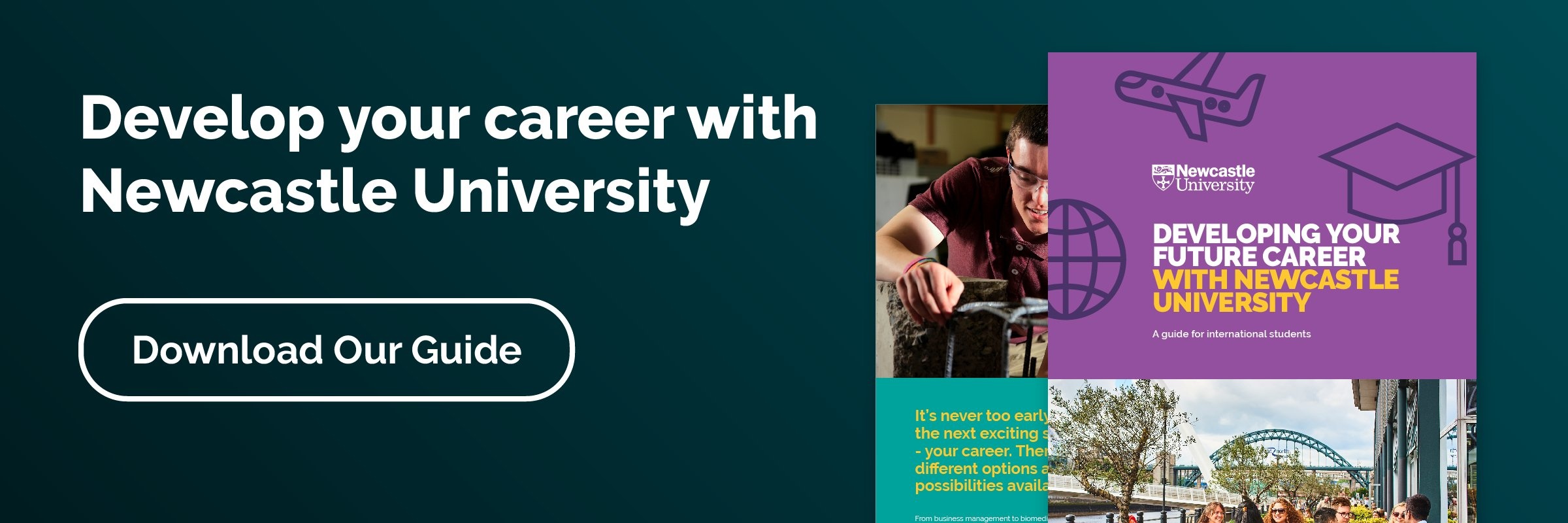University is an exciting time where you’ll meet new people, explore new places and learn lots of new things. After you graduate, it’s still exciting but for different reasons. It can also seem scary - especially if you’re not sure what to do after graduating.
Here, we look at just six of the choices available to you.
- Study a postgraduate degree
- Get a part-time or full-time job
- Self-employment
- Do a graduate scheme
- Travel
- Look for an internship

1. Study for a postgraduate degree
Because you’ve been studying for many years, graduating from university can feel like the end of a big part of your life. However, it doesn’t have to be the end of your studies.
You may be curious about an area of your Bachelor’s degree or have discovered a completely new passion in the form of another subject. Whatever it might be, studying a postgraduate degree builds on the skills and knowledge you’ve gained throughout your time at university.
This can improve your career prospects - especially if the additional qualification is related to your degree. If the degree is about a completely different topic, this is also a great accomplishment. This shows employers your willingness to learn and your ability to apply the knowledge and skills you have gained.
At Newcastle University, we offer a wide range of courses to suit the subjects you’re passionate about.
2. Get a part-time or full-time job
You may think that you will graduate and get your dream job straight away. Although this does happen, it may not be straight away. And that’s perfectly fine.
Doing a part-time job can be a great way to spend your time between graduation and discovering your perfect career. Even if it’s not in your ideal industry, you can still gain valuable skills, such as customer service and teamwork.
You can also get a full-time job. If you can find openings relevant to your course - brilliant! You can use all of the skills you picked up during your course and use them to succeed in your new dream job.
A great place to start when looking for experience is to use services such as LinkedIn and recruitment websites. These show the companies, experts and opportunities available to you.
3. Self-employment
If you’re looking for jobs and feel like you haven’t found one which is perfect for you, there’s always the option of becoming self-employed.
If you can imagine your ideal job role and company, why not look into creating this for yourself? Thanks to online resources and the university careers services available to you, it may be a more suitable option than you once thought.
At Newcastle University, we also have a START UP initiative. The team can help you develop opportunities, explore ideas, help you get into freelance work or even start your own business. They’ll be able to help you at every stage.
Many international students have found success through START UP. Some have even launched their own businesses. This shows just some of the endless possibilities available through self-employment.
You can read more about their success stories here.
4. Do a graduate scheme
If you aren’t fully familiar with graduate schemes, they’re set up by companies and allow students to gain experience in industries. They teach the practical skills needed for succeeding in certain careers after graduating and pay you at the same time.
They allow you to train in your chosen career and usually last for one to three years. This gives you time to think about your career options and the work you are doing. Also, as they’re created for graduates, they can offer a qualification at the end to improve your employability once you finish the scheme.
5. Travel
You may have thought about the previous choices but none of them feel like the right one for you. Don’t worry, because they don’t have to be - there are lots of other paths you can take. One of these is travelling. The time you have after finishing university is valuable so use it wisely.
Travelling can provide you with further skills and knowledge about the world around you. It gives you independence and can help to improve your planning skills, communication and more. You also have the opportunity to learn new languages, meet new people and experience new cultures.
6. Look for an internship
Internships provide an opportunity for you to gain graduate-level work experience and develop industry knowledge. An internship can also help you decide what your career interests are and you’ll also make important contacts within the sector.
Internships are also useful because you’ll see what the UK business culture is like. You’ll even gain positive feedback and references from employers. These are very useful for future applications.
Not all internships are advertised. So if you find a company that you’d like to work for, approach them directly. Or you can click here to find out how the Newcastle University careers team can help you find an internship.
What should I do now?
Now that you’ve discovered just some of your options, it’s important to research to find out more.
It’s a great idea to visit and chat to the careers service team at your university. You can get advice about your career path, processes like applying for postgraduate study and how to succeed in interviews. Stay positive and excited about the endless choices you have for your future!
Start developing your career with Newcastle University
These are just some of the incredible opportunities which become available to you once you graduate from university. At Newcastle University, we offer the support and guidance for you to start discovering all the options you have to choose from. We also provide advice and materials which are useful in broadening your career options.
To get more information about your career options and how to finalise your choices, we’ve created a free career guide which offers tips and advice on how to successfully take the next steps.
From useful statistics to career path planning tips, you’ll find everything you need to know in this helpful resource. Click the link below to download your free copy now.
